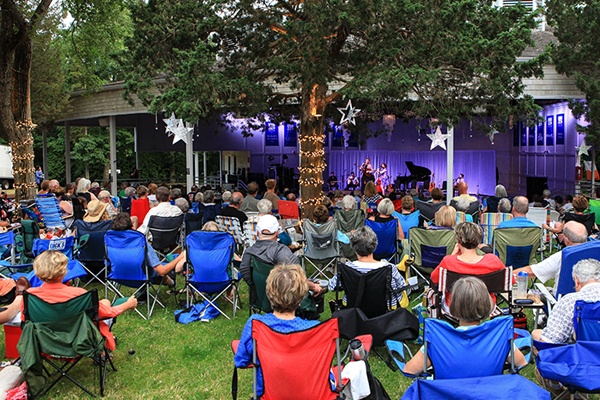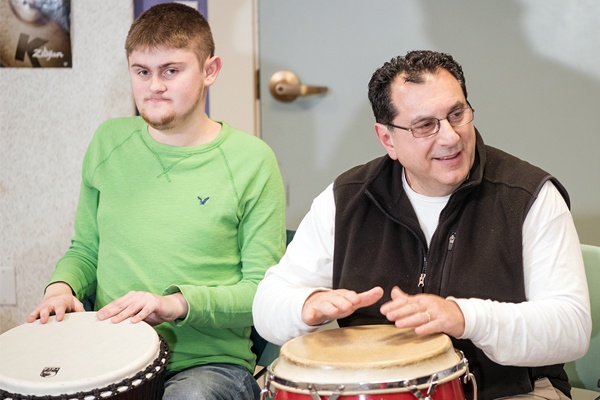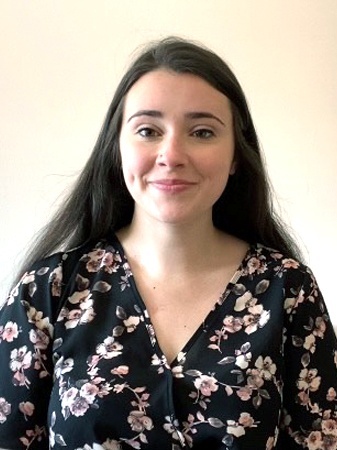
Joanna Kennedy, Creative Arts Therapies Program Manager
Welcome to SSC Creative Arts Therapies (CAT) Department. Our highly qualified therapists and specialists use the arts and creative processes to help individuals maximize their abilities and improve health and wellness.
Offered, as part of our CAT Department here at SSC, is Music Therapy and Dance Therapy. Accessible Yoga is also available for some programming. Professional Development round out our array of services in Creative Arts Therapies, with offerings that include Access and Accommodation, Diversity, Equity, and Inclusion, Social/Emotional Learning through Music, and more.
All our programs are designed to maximize independence and are provided in the least restrictive environment. We welcome all levels of ability and all ages. While some of our programming may be specific to certain needs, we strive to integrate all our groups and classes.
Our staff is highly trained and maintain board certification and continuing education in their specific disciplines. Please contact SSC if you have any questions or would like more information on any of our CAT offerings.
View Creative Arts Therapies Department Faculty
CAT Department Offerings
CAT in the NEWS
Song, dance, and conversation are on the menu at Duxbury’s Memory Cafe
By Robert Knox Globe Correspondent, Updated January 5, 2022, 6:22 p.m.
People sit in a circle. Their caregivers or family members join them. Music is played, singing and movement encouraged. Photos, or other pictures, may be shared.
South Shore Conservatory’s creative arts therapies department is partnering with the Duxbury Senior Center to bring its Memory Café to a new location at the senior center and a wider population this month.
Conversation is a big part of the Memory Café, a social gathering for people living with Alzheimer’s and other forms of dementia. Participants and their caregivers are encouraged to take part in activities and enjoy spending time with others.
Chorus for people with Parkinson's to resume in person in January
Sue Scheible, The Patriot Ledger
December 19, 2021
HINGHAM – A choral group for people with symptoms of Parkinson's disease is returning to in-person sessions after going online for the past year during the pandemic. South Shore Conservatory's Singing with Parkinson's chorus, which went virtual in September 2020, will meet in person starting Jan. 12 at the Conservatory's Hingham campus. Cathy Kang, of Scituate, a music specialist, will be the new conductor. The chorus will meet on Wednesdays from 5 to 6 p.m. and is open to those living with Parkinson's disease, their care partners, and anyone in their support network. The group will be limited to 20 people so social distance can be maintained. On the South Shore, more than 300 people are living with the progressive neuromuscular disease, according to the conservatory. The brain disorder causes tremors and mainly affects older people, with the average age of diagnosis being 60. Symptoms include shaking, stiffness and difficulty with walking, balance and coordination. The Conservatory's Creative Arts Therapies Department received an American Parkinson Disease Association grant to fund the renewed chorus. The new session runs from Jan. 12 through June 1, 2022. The chorus was started in January 2019 by Eve Montague with a grant from the American Parkinson Disease Association Massachusetts Chapter. Read more...
DOUG FLUTIE FOUNDATION PROVIDES THERAPY FUNDING FOR CHILDREN WITH AUTISM
April 25, 2022 by Kristi Faby
I once read an incredible article by a music therapist who had autism. She shared that her autism is a strength when it comes to her musicianship. For instance, practicing a musical phrase repeatedly demonstrates artistic dedication instead of “stimming,” a stereotypical behavior that refers to repeated movements or sounds. As a music therapist myself, I can list a multitude of reasons why music impacts the brain, but when I read this piece, something clicked for me. Instead of viewing the individual as benefitting from music, the music was benefiting from the individual. I can list so many reasons why someone should engage in arts therapies, and this is at the top.
More traditional research shows that music therapy for children with autism can lead to higher self-esteem, greater communication, and emotional regulation. I notice that these outcomes are even more possible when family members actively participate in sessions. Through making music or other forms of art, children engage in developmental domains of physical, cognitive, social/emotional, and linguistic development. Toddlers can be diagnosed with autism as early as 18 months. This is good news for brain development, as a diagnosis allows children to receive needed services early, when neuroplasticity is at its height. In Massachusetts, there are a host of early intervention programs that provide music therapy, either internally or externally. For example, South Shore Conservatory provides therapy through First Early Intervention (EI) in Weymouth.
Music therapy program engages Massachusetts students at time when it's needed most
Josh Brogadir
Reporter, WCVB5
BRAINTREE, Mass. —
Engaging students through music at a time when it’s needed most — a special program is helping kids in Massachusetts.
“If a child is even tapping their feet to music, and they weren’t before, that is so positive and that’s engaging. If a child is smiling, that’s positive,” said Kristi Faby, director of the Creative Arts Therapies program at South Shore Conservatory.
Music therapists from the Creative Arts Therapies program at the nonprofit South Shore Conservatory are traveling to classrooms around the region.
“During the pandemic, children had a hard time not being in the classroom and lost some of those skills that you just naturally get being around peers,” Faby said. “So, a lot of what we address in music therapy can help with those things but in a really fun positive way.”
United by music: South Shore Conservatory's inclusive choruses return to in-person singing
Jenna Manto | Wicked Local
After singing together on Zoom for about a year, the students of the inclusive Community Voices choruses of the South Shore Conservatory will finally reunite in person for the upcoming fall season.
The conservatory's Creative Arts Therapies department has run the Community Voices chorus for over a decade as an inclusive opportunity for "people of all different abilities" ages 16 and up, conducted by board certified music therapists, said Kristi Faby, director of the Creative Arts Therapies department.
As the Community Voices chorus, which resides on the Duxbury campus, grew in popularity over the years, the Community Voices Too! chorus was established in 2012 on the Hingham campus. Read more at Wicked Local/Hingham Journal.
Video Recources
SSC Community Voices Holiday Concert 2020
“Stand By Me” presented by SSC’s Creative Arts Therapies Team
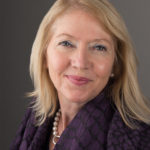
Margaret O’Connor, PhD Associate Professor of Neurology at Harvard Medical School

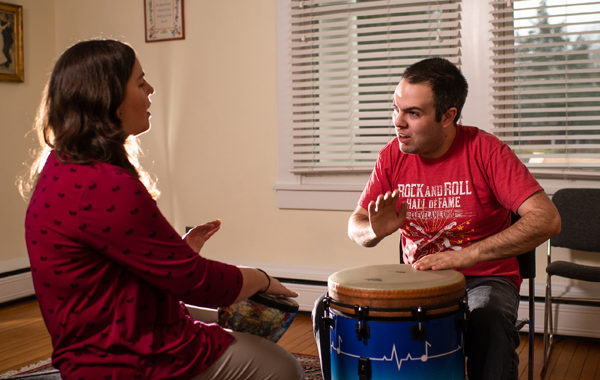
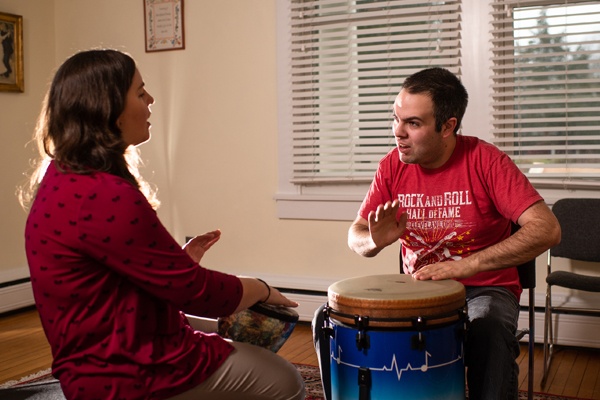
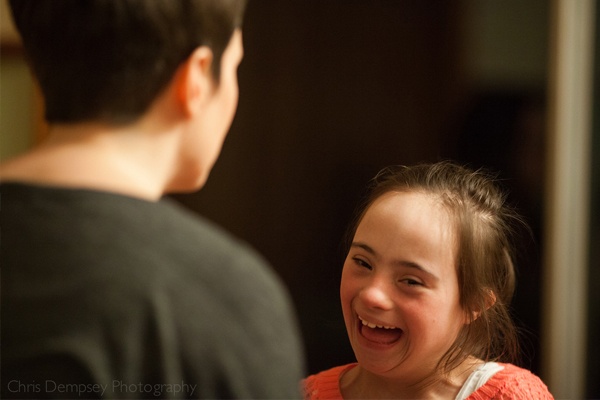

![Gita Brown and a class for boys with autism during spring 2016]](https://sscmusic.org/wp-content/uploads/2018/03/YOGA-Gita-group-autism-class.jpg)


